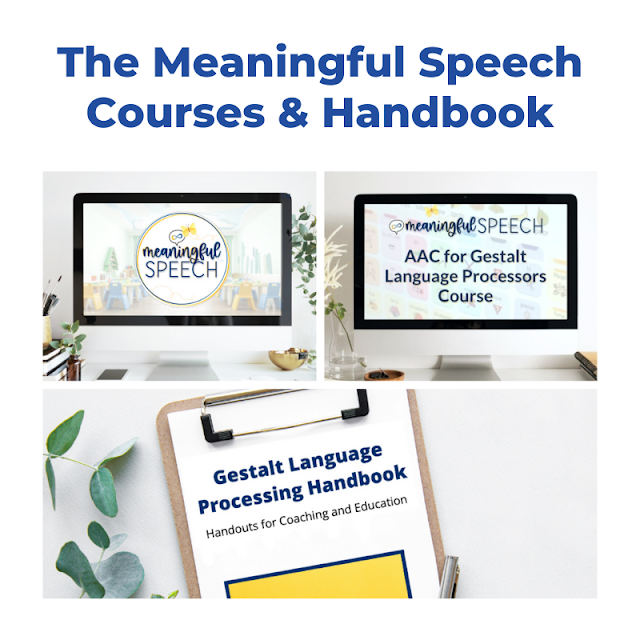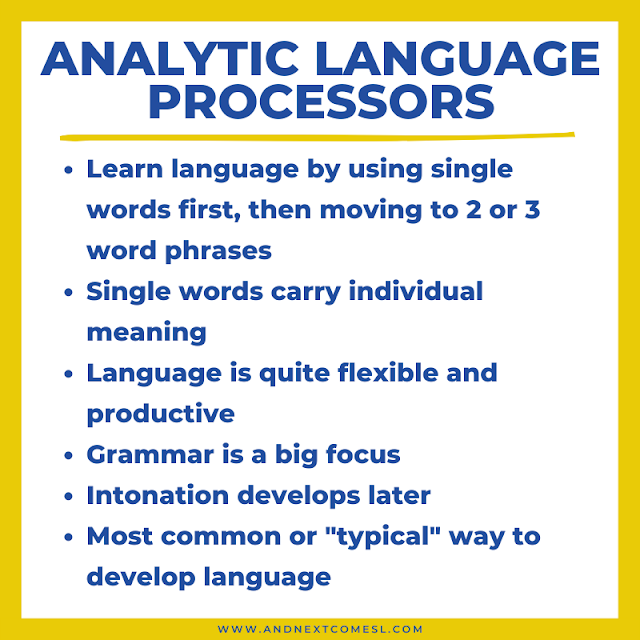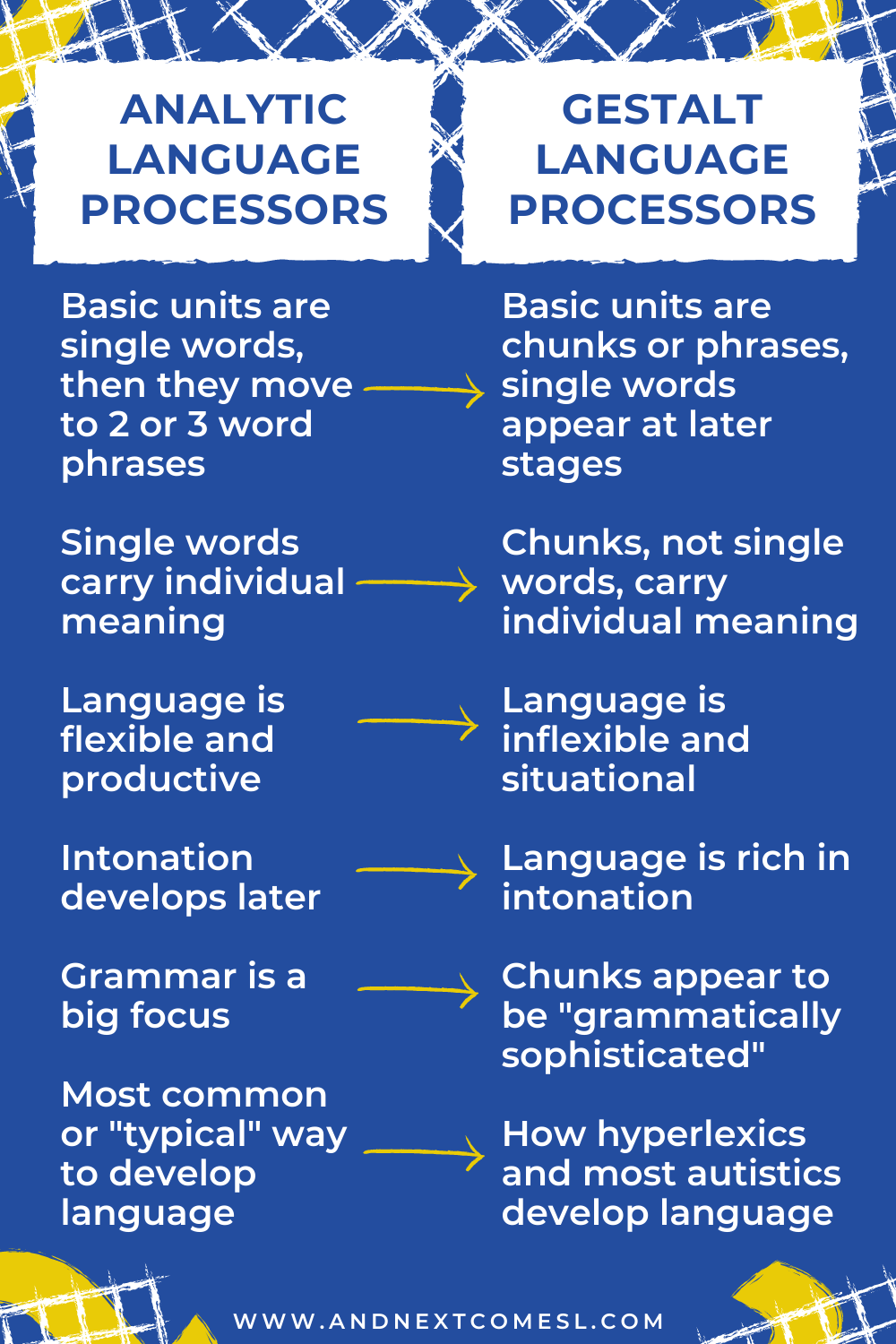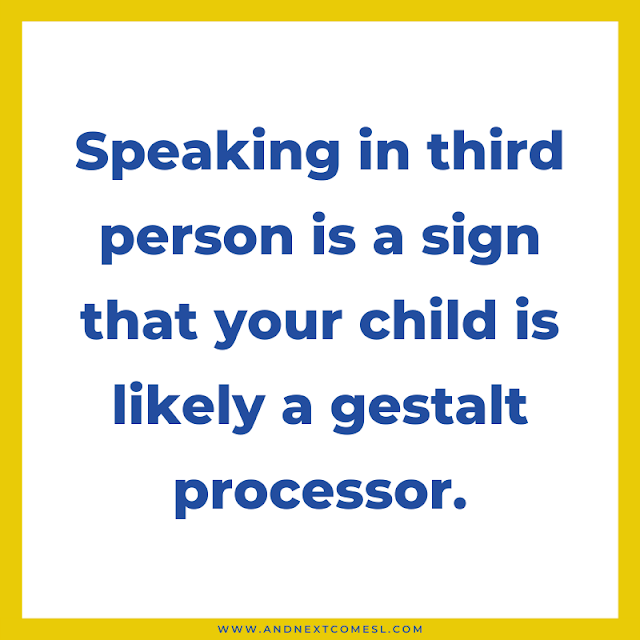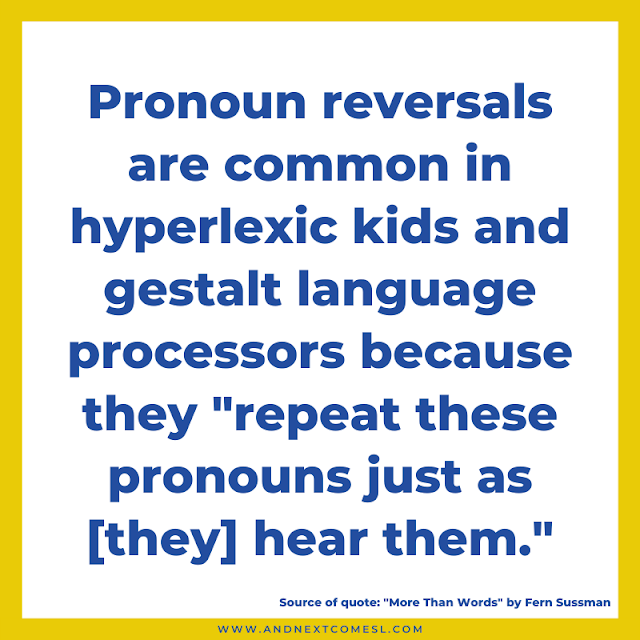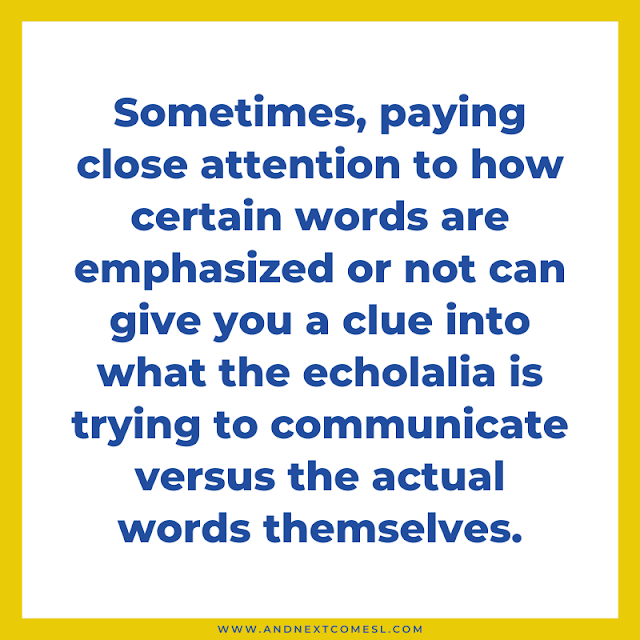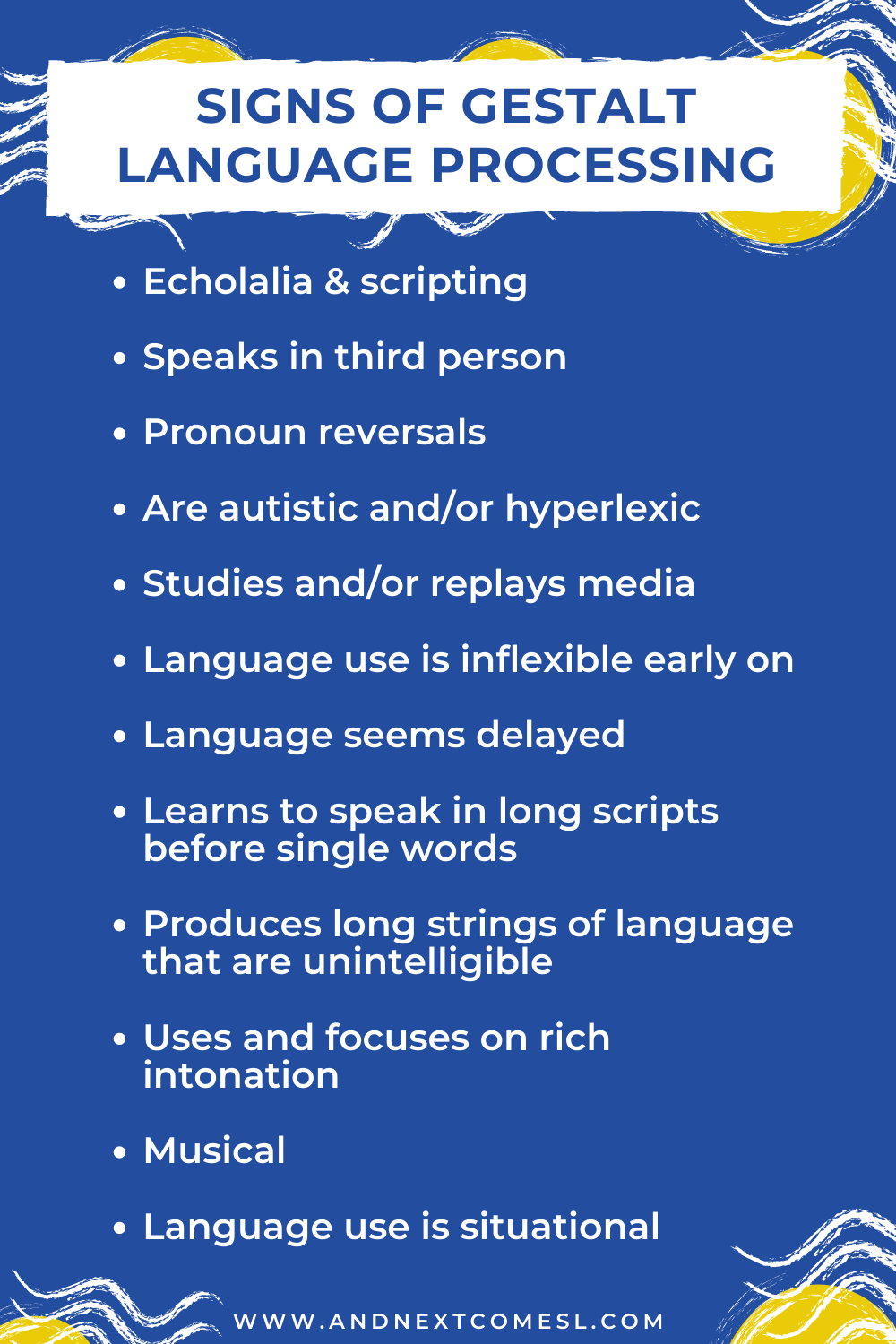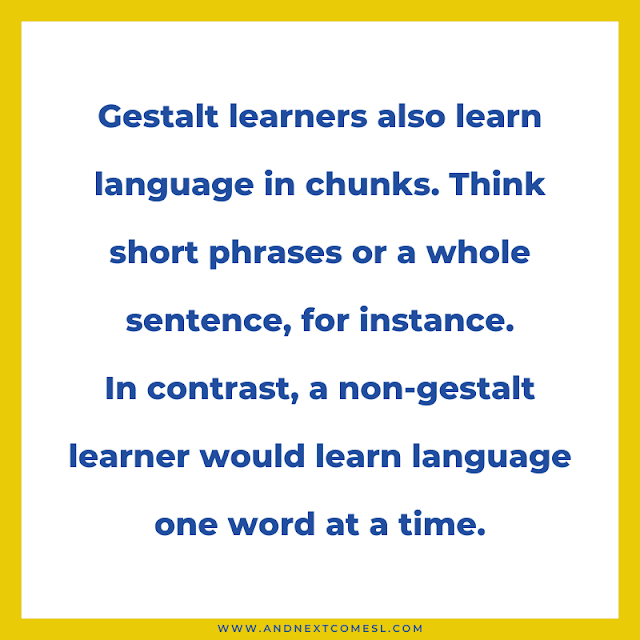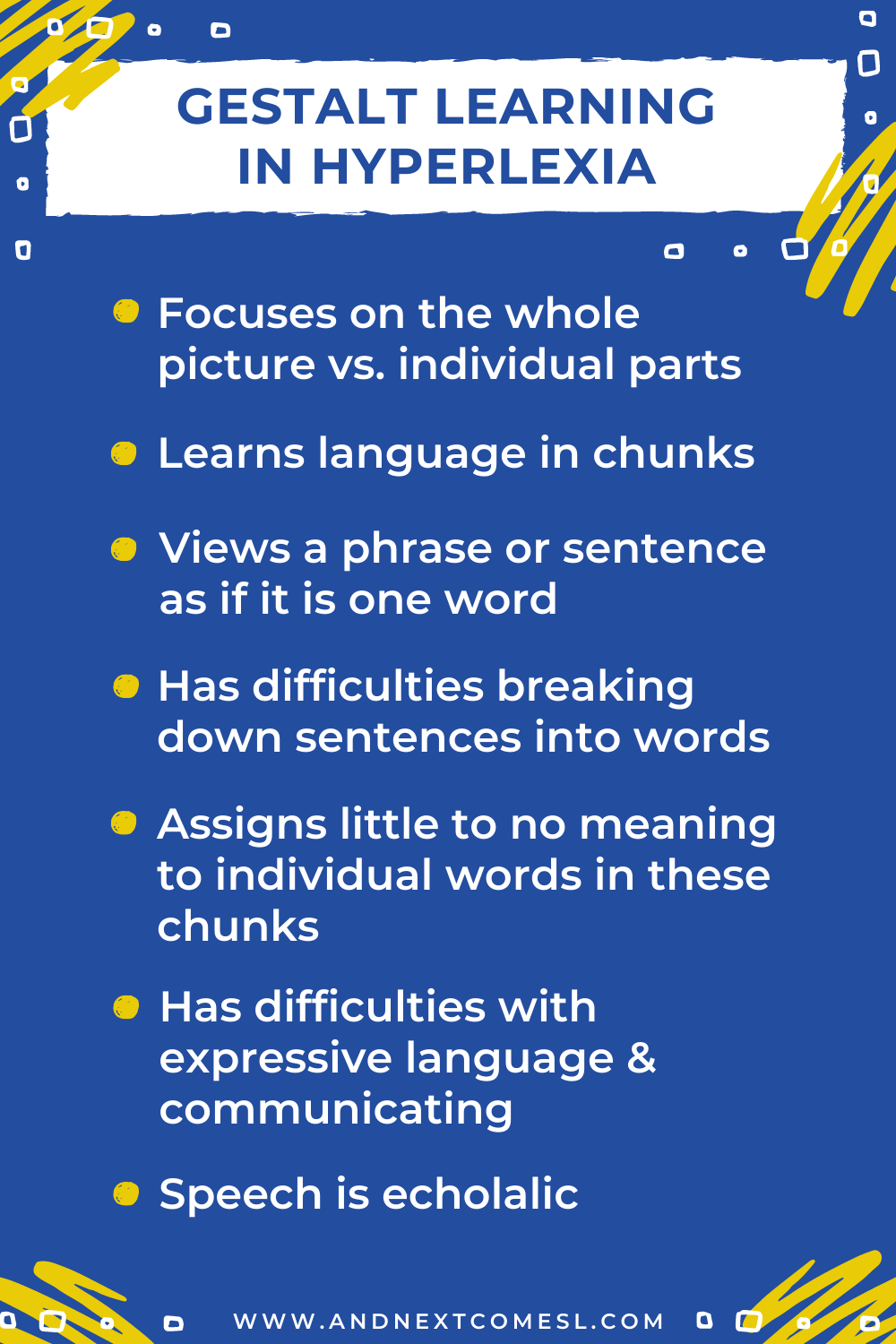When you first learn about gestalt language processing, you'll encounter a bunch of new-to-you terms like gestalts and mitigation and rich intonation. You might be wondering, what do these terms even mean?!
Trying to read about something new, when you don't even understand the lingo that they're using, can make it really hard to follow along. Tricky, even. We simply need to build that schema or background knowledge first, much like we do with hyperlexic kids and their comprehension.
So, before you learn more about gestalt language processing, let's go over some of the most common terms or jargon, if you will. After all, these words are used again and again so you might as well learn what they mean, right?
Below you'll find a list of the most common gestalt language processing terms and their definitions. So let's dig in!
Common Gestalt Language Processing Terms & their Definitions
Here are some of the most common terms you'll hear when reading or learning about gestalt language processing. I've included relevant resources for many of the terms below in case you'd like to learn more.
Gestalt Language Processing
Gestalt language processing refers to learning language in chunks or phrases with single words appearing at later stages. When someone is a gestalt language processor, their basic units of language are chunks, not single words. Sometimes you might see gestalt language processing abbreviated as GLP. Learn more about gestalt language processing here.
Gestalts
Gestalt language processors learn language in chunks or phrases called gestalts. You might know gestalts as scripting or scripts. So gestalts are those chunks or phrases of language that a child scripts with.
It's important to note that gestalts - not the individual words - carry meaning so gestalt language processors view phrases or sentences as if it were one word.
Natural Language Acquisition
Natural Language Acquisition, or NLA for short, describes gestalt language development in detail. It recognizes the importance of echolalia and describes the stages through which a child moves, from echolalia to self generated grammar and spontaneous language.
You can learn more about Natural Language Acquisition in Marge Blanc's book Natural Language Acquisition on the Autism Spectrum or by taking the Meaningful Speech course.
Media Echolalia or Media Gestalts
These terms refer to long chunks of language that are repeated from media, whether that's a movie, a book, a song, or a YouTube video.
Mitigation
Mitigation refers to the combining of gestalts. Think mixing or matching or even movable. Basically, it's when you take parts of a gestalt or phrase and combine it with other parts of other gestalts or phrases. That process of mixing and matching is called mitigation.
Easily Mitigatable Gestalt
This term refers to phrases or utterances that can be easily broken down and re-combined with other gestalts or phrases and still sound natural. They're phrases that are movable and easy to mix and match with other phrases.
For example, a script from a movie, TV show, or book such as "Chicka Chicka Boom Boom will there be enough room?" or "Chase is on the case!" isn't easy to mix and match. However, a gestalt such as "Let's put on our shoes!" can easily be mixed and matched into phrases such as "Let's go!" or "Let's put on our hats." or "It's time to put on our shoes."
Delayed Echolalia
Delayed echolalia refers to the repetition of words or phrases that occurs some time after hearing them. Learn more about echolalia here.
Intonation
The term intonation refers to how the pitch of your voice goes up and down as you speak. Think of it as how we make speech sound more interesting.
Rich intonation (think animated and lively language) is a key sign that your child is a gestalt language processor so you'll hear this term a lot when reading about or learning about gestalt language processing.
Declarative Language
Declarative language is simply a comment or a statement that shares what one knows, observes, or thinks. Using it can provide great language models for gestalt language processors. There are lots of other benefits too! Learn more about declarative language here.
Gestalt Cognitive Processing
For gestalt cognitive processors, the whole is greater than all of its parts. They're whole to part thinkers. In other words, they see the whole picture as more important than the individual pieces or components.
For these types of learners, toys may need to remain as a whole. Think about hyperlexic kids' alphabet play and how distressed they can become if a letter is missing, for instance. Learn more about gestalt learning here.
Pronoun Reversals
Pronoun reversals are when a child mixes up the pronouns they use when speaking. They often end up talking in third person as a result.
These reversals are quite common in hyperlexic kids and gestalt language processors because these kids pick up entire gestalts, including the pronouns that the original speaker used. In other words, they echo back the gestalts they hear exactly as they first heard them without modifying the pronouns.
Pronoun reversals are really nothing more than them repeating the gestalts they hear. Regardless, these reversals are a good sign that your child might be a gestalt language processor.
You can learn more about pronoun reversals in hyperlexia here.
Whisper Scripting
When a child whispers or says a script or gestalt at a low volume, it can be referred to as whisper scripting, just like the name suggests. There are many reasons why a child might whisper script. I recommend reading this post from Meaningful Speech for more information.
Want to Learn More About Gestalt Language Processing?
If you'd like to learn more about gestalt language processing and Natural Language Acquisition, I highly recommend checking out the Meaningful Speech courses and their Gestalt Language Processing Handbook. Use coupon code DYAN to save 5% on the handbook or courses.
Learn more about the Gestalt Language Processing Handbook & Courses
Hopefully you found this post about gestalt language processing terms and definitions helpful and are now better able to follow discussions on this topic.
Other Gestalt Language Processing Resources You'll Love
Signs of Gestalt Language Processing
Echolalia Terms You Should Know



